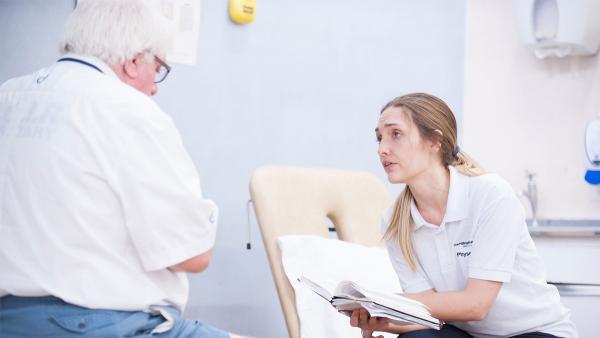How can a physiotherapist help with neck pain?

Physiotherapists are highly skilled at supporting people with neck pain. They may give you hands-on treatment such as manual therapy. Your physio will probably advise you on suitable exercises and pain relief, as well as tips on how to prevent further problems.
Physiotherapists work in the NHS, privately, for charities and in the work-place through occupational health schemes. They are the third largest health profession after doctors and nurses. Physiotherapy has been shown to work through clinical studies and research and is a treatment you can trust.
What happens when I see a physiotherapist for neck pain?
When you see a physio, they will assess your problem and give you advice. They may give you a physical treatment. Everything you tell the physio will be completely confidential.
So that your physio can have a good look at your neck, they may need you to remove some clothes. It’s a good idea to dress comfortably and wear suitable underwear
How can I help neck pain myself?
Exercise can help your neck pain and there are also ways to help prevent it coming back. The right sort of exercise, as advised by a physiotherapist, may make a big difference. Lifestyle changes, such as being more active may also help.
Consider the 'bigger picture' and lifestyle factors. Ask yourself the following questions:
- Have you been sleeping less?
- Have you been more stressed?
- Have you not had the opportunity to exercise as much as usual?
- Have you been working in sustained positions for longer periods of time?
All of these are possible triggers for neck pain.
Top tips to prevent neck pain
- Try to take regular breaks from work that involves sustained positions. Consider taking a brisk 30 minute walk in your lunch break to move your joints.
- Shrug and lower your shoulders, or wave your arms up and down, away from your sides to help reduce neck tension.
- Practice relaxation if you are prone to stress, to reduce tension across your shoulders and neck.
Are you getting regular exercise?
Reduced physical activity is a risk factor for neck pain and people with stronger necks from doing exercise are less likely to suffer from neck pain. Read the NHS physical activity guidelines recommended for adults.

